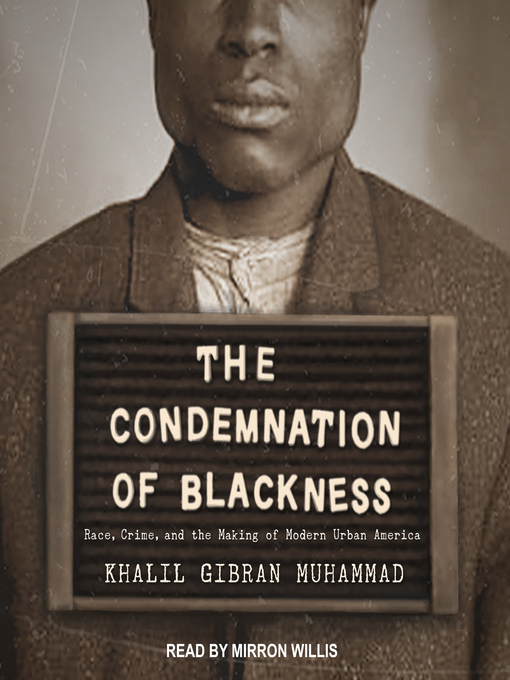- Popular Magazines
- Home & Garden
- News & Politics
- Food & Wine
- Celebrity
- Outdoor & Travel
- Art & Architecture
- Business & Finance
- Crafts
- Family & Parenting
- Boating & Aviation
- Science
- Photography
- See all
-
Description
-
Creators
-
Details

- Khalil Gibran Muhammad - Author
- Mirron Willis - Narrator
OverDrive Listen audiobook
- ISBN: 9781541429697
- File size: 366339 KB
- Release date: August 1, 2017
- Duration: 12:43:12
MP3 audiobook
- ISBN: 9781541429697
- File size: 366376 KB
- Release date: August 1, 2017
- Duration: 12:52:10
- Number of parts: 15
Formats
OverDrive Listen audiobook
MP3 audiobook
subjects
Languages
English
